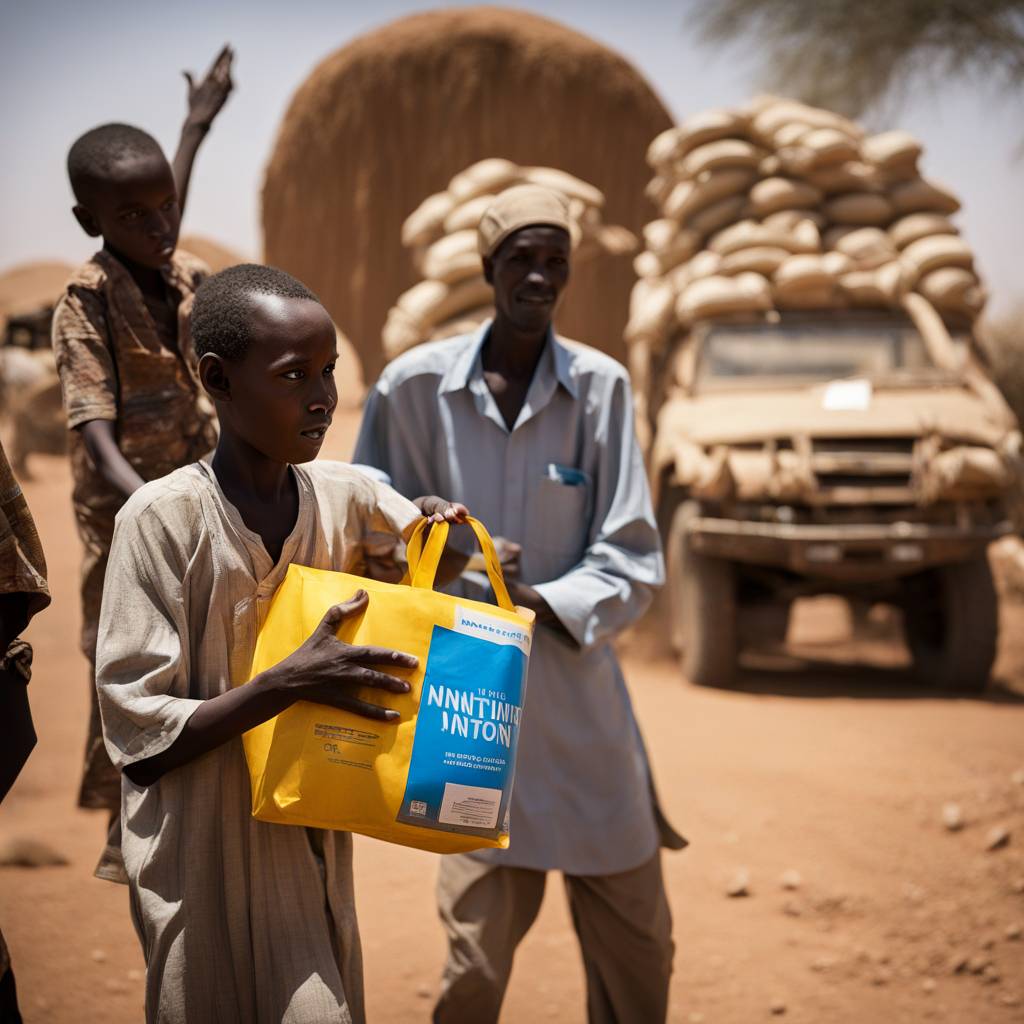The United Nations has begun distributing food in Sudan’s Darfur region for the first time in months, following aid convoys crossing the border from Chad. The delivery is part of efforts to address the impending famine caused by a yearlong war and lack of access to food aid. The World Food Programme (WFP) stated that the aid convoys carried food and nutrition assistance for about 250,000 people for a month, with distribution currently underway in West and Central Darfur. This comes after lengthy negotiations to reopen humanitarian corridors from Chad that were closed in February by authorities loyal to the Sudanese army.
The conflict in Sudan, particularly in Darfur, has contributed to one of the world’s worst hunger crises, with about a third of the population – or 18 million people – facing acute hunger, according to UN aid agencies. The situation in Darfur has been particularly severe, with brutal attacks by the paramilitary Rapid Support Forces (RSF) raising concerns of another genocide. Despite the recent aid delivery, the WFP remains concerned about the lack of access to humanitarian corridors, emphasizing the urgent need for a constant flow of aid to prevent further deterioration of the hunger crisis.
Sudan’s cereal production in 2023 has been significantly impacted by the conflict, with production nearly halved according to a report by the Food and Agriculture Organization. The sharpest reductions were reported in areas where the conflict was most intense, such as Kordofan state and states in Darfur. The WFP has highlighted the alarming levels of hunger in West Darfur and emphasized the importance of routes from neighboring countries like Chad in preventing widespread starvation. With the lean season approaching, there are fears of unprecedented levels of starvation and malnutrition sweeping across Sudan if aid access is not improved.
The UN has warned that without urgent intervention, 222,000 children in Sudan could die from malnutrition in the coming months. The conflict between army chief Abdel Fattah al-Burhan and RSF leader Mohamad Hamdan “Hemedti” Dagalo has exacerbated the humanitarian crisis, leading to mass displacement and severe food shortages. The reopening of humanitarian corridors from Chad is seen as crucial in addressing the hunger catastrophe in Sudan. The closure of these corridors earlier in the year had impeded aid delivery efforts, further worsening the hunger crisis.
Efforts to address the hunger crisis in Sudan are hindered by ongoing conflict and lack of access to humanitarian corridors. The WFP’s recent aid deliveries to Darfur mark a small step forward, but more sustained assistance is needed to prevent widespread starvation and malnutrition. The international community must work together to ensure that aid reaches those in need, particularly in conflict-affected areas like Darfur. Without immediate action, the situation in Sudan could deteriorate further, leading to devastating consequences for millions of people facing acute hunger.













